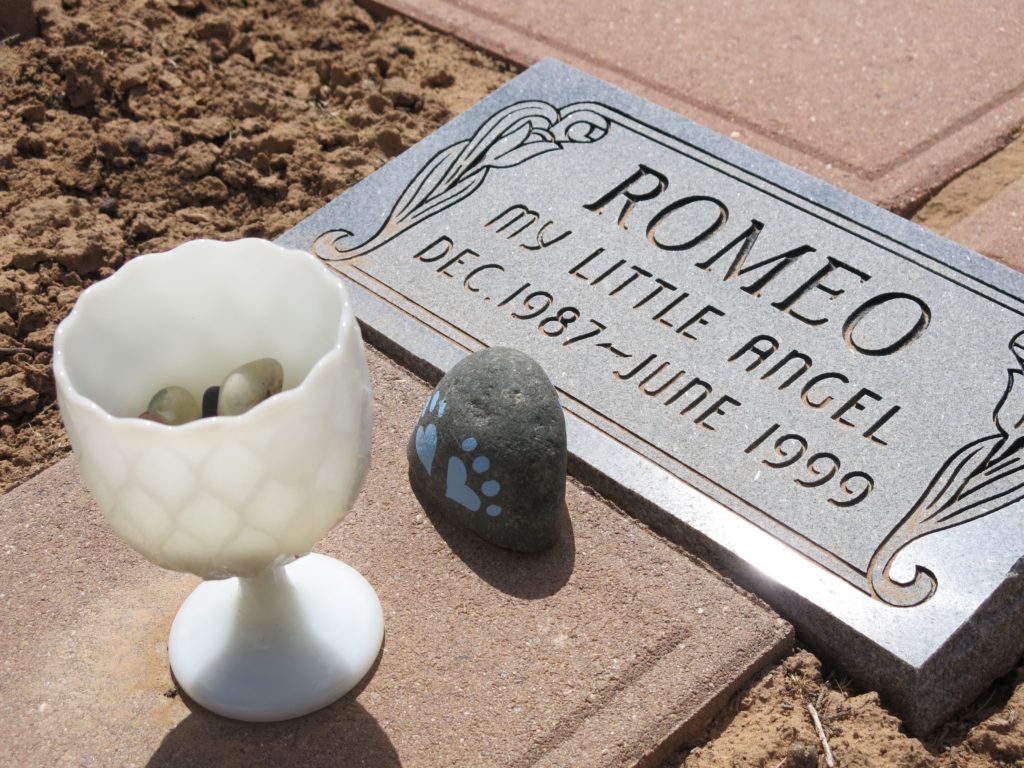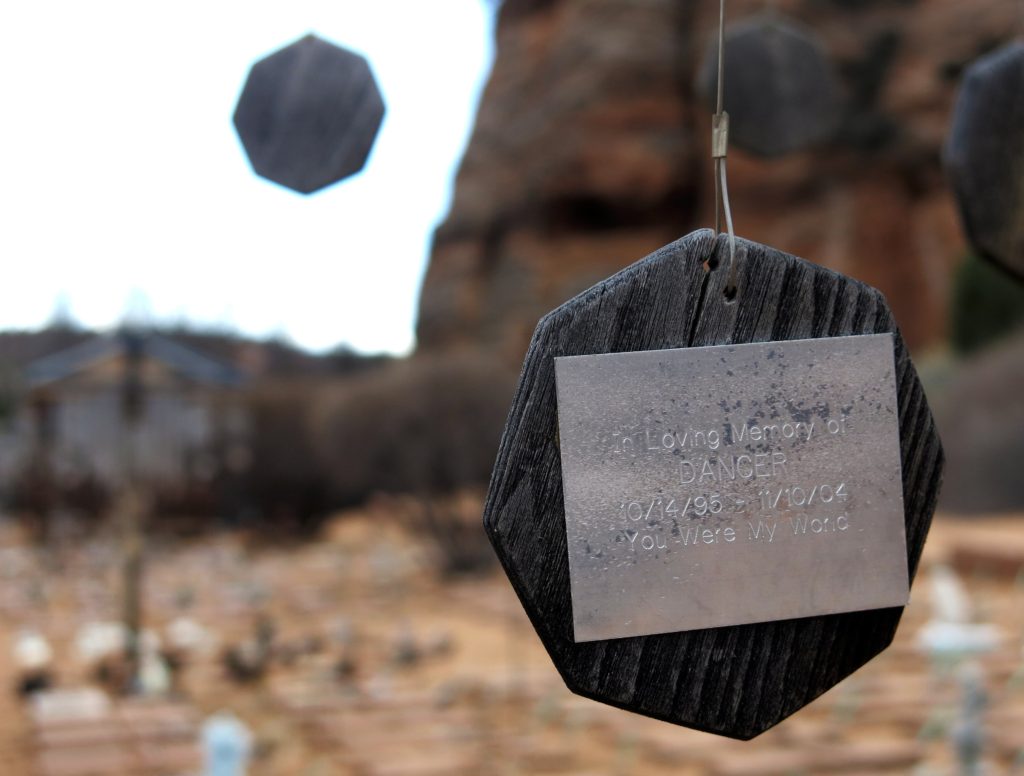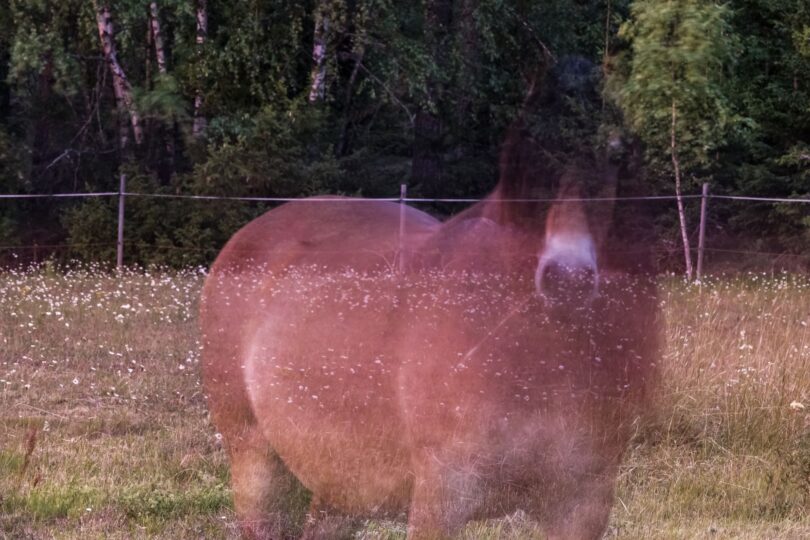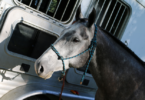Note: This article was originally published on our sister site Love & Let Go.
It’s a process, and it takes time
Losing a horse (or any pet) can be one of the hardest things a person has to go through. You don’t get time off of work. People don’t often send flowers or drop off meals. There is no funeral for finding peace and closure. It’s normal to feel lost and craving more support from those around you.
Through the years I have lost many pets, and worked with pet owners going through the same thing. The most important thing I’ve learned is the there is no “right” or “wrong” way to process your pain, and the stages of grief’ may look different for everyone–and even from pet to pet.
According to Elizabeth Kübler-Ross, a Swiss-American psychologist, grief happens in five stages:
- Denial
- Anger
- Bargaining
- Depression
- Acceptance
Her work suggests these stages are fluid, meaning you may find yourself stuck in one for a while, skip some others, or find ourself bouncing between them. That’s all okay.
Stage #1: Denial
Denial isn’t always defined as a complete disregard for reality. It can be a sub-conscience feeling.
One of the hardest parts of grieving pets is usually walking through the door after work. Your brain has been trained to expect what you’ll hear, or see, and this time of “re-training” can be incredible difficult.
One snowy afternoon, six months after loosing Bubbles, my tiny toy poodle, I was letting my other dogs inside, and I looked down expecting to see her hopping up on the first step by the door, waiting to be picked up. I had opened that door thousands of times in the prior six months, but that feeling of denial crept in.
Chief Rookie Aside: Three years later, I still often do a double-take when I see a chestnut horse with a blaze that looks like a horse I lost to a broken leg in the pasture.
Your pet may appear in dreams, pop up in little memories, and come to mind when you least expect it. All of this may feel immediately painful.
As time goes on, the painful memories will fade and the happy ones will find a way to shine through again.
Keeping pictures around, favorite mementos close, and even telling stories can ease the continual realization that your pet is physically gone–but not forgotten.
Stage #2: Anger
Anger is tricky to predict, as it presents so differently for everyone.
We may find ourselves angry at the situation, at ourself for making the choice to let our friend rest, or at a disease or accident for forcing our hand.
You may be angry at those around you for not having the empathy you wish they did.
For me, as hard at it is to admit, I even found myself briefly mad at my other pets for still needing me, when I didn’t have Bubbles to care for anymore. Anger may also bring on guilt, which can then lead to bargaining.

Source: Love & Let Go
Stage #3: Bargaining
I call bargaining the “what ifs.” What if I had tried the other mediation? What if I had gone to the vet sooner? What if I had a taller fence or double-checked the pasture gate?
It’s normal to find yourself consumed by questions and self-doubt.
You have to remember that you are only having these thoughts, or even reading this article, because you loved your pet.
The sense of guilt that comes along with grief can be overwhelming. This is especially true when dealing with children’s loss of their best friend, or after an accidental injury that led to your horse’s passing.
Stage #4: Depression
Depression. Sadness. Despair. Loss. This stage doesn’t necessarily require a lot of explanation.
The key takeaway is that it’s natural to feel depressed. You are allowed to grieve. You are allowed to cry, yell, or wallow on the couch and eat ice cream.
In fact, some down-time is healthy. Your body needs a way to let emotions out. It’s why we may cry or yell (maybe not why we eat ice cream though).
Allowing yourself to feel these emotions is not about dwelling on them, its about forward motion.
We may think we are supposed to just keep going—power through—and work, cook, and move on with another horse. But emotions need an outlet.
When I have been grieving, I have thought it might never end, but it does. The feeling may never go away completely, but sadness eventually shifts. Instead of tears and pain, memories become bittersweet and happy stories return to your mind.
If you are feeling a prolonged sense of despair, or feel as though you don’t want to continue on, please contact 1-800-273-8255, a national crisis hotline, for help.

Source: Love & Let Go
Stage #5: Acceptance
Arriving at acceptance is often something you don’t notice until you’re already settled there.
It can be hard to feel like you’ve made the right choices, or that circumstances really were out of your hands.
As I have said countless times to patients throughout the years, you knew your horse better than anyone else. They spent their lives with you. They whinnied their way into your life more than others ever can really know.
You knew them best. You knew what they needed in their final moments.
Accepting that you truly did your best can be extremely hard. Once you are able to believe that, though, you can finally begin to move forward.
Frequently Asked Questions
Is it normal to grieve for a pet?
Absolutely. Grieving a pet is as normal as grieving a family member. You may even spend more time with your pet than members of your family.
There is no shame or embarrassment. Almost everyone you meet has lost a pet and had to deal with that grief.
How do you move on when you lose a pet?
Everyone faces their grief differently. One of my favorite things is to do something in memory of my pet. It could be putting a bucket of tennis balls at their favorite park. A donation in their memory to the rescue where you got them.
Talk to your family and find a way to memorialize your pet that feels right for you.
Where can I go for help coping with my grief?
Many animal shelters run pet loss support groups, so check with your local shelters.
There are also many online resources, including text help lines, and Facebook groups. If you’d like to speak with a grief counselor by phone, call a national crisis hotline at 1-800-273-8255 for immediate support.
No “Right” Way to Grieve
Losing your horse is the hardest part of equestrian life. Look back and consider all of the wonderful times, and hopefully you will realize that is was worth it.
Allowing yourself to work through the stages of grief, however they may present for you, is part of the healing process. Remember that your pet loved you, and you loved your pet. That love will never end.
P.S. If you found this article helpful, check out:
- 4 Survival Tactics to Cope with Horse Loss and Grief
- Dogs in Distress: Do Barn Dogs Grieve?
- How to Survive Losing a Horse Without Losing Yourself
- Gone, Kitty, Kitty: 6 Tips for Coping with Barn Cat Loss
- Navigating the 5 stages of grief after losing a horse







